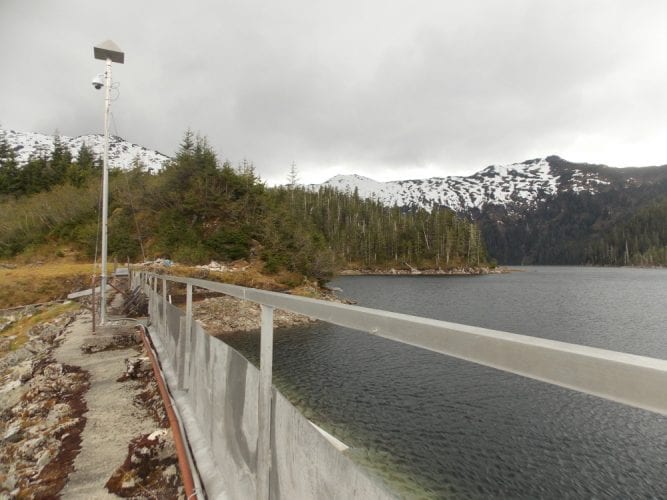
Diesel generators in Petersburg and Wrangell have been turned off this week as the two communities are back solely on hydroelectric power for the first time in over a month.
The warm sunny weather has done enough to raise hydroelectric lake levels slightly and allow the return to cheaper and cleaner hydro power.
Petersburg’s utility director Karl Hagerman says he received a call Sunday, March 24th from the Southeast Alaska Power Agency, or SEAPA . That agency owns the Tyee Lake hydro plant, the main power source for the two communities.
“There was a decision made that there was enough snow melt inflows coming into Tyee Lake that they felt comfortable in taking Petersburg and Wrangell off diesel generation support,” Hagerman said. “So I didn’t ask him to repeat himself and we immediately set about communications with Tyee Lake power plant and starting to shut things down.”
Petersburg was running those generators round the clock for a month and on a part time basis before that, while burning a very small amount of hydroelectricity. Normally the diesels are a backup power source only. The municipality’s electric utility has asked customers to conserve electricity during that time and Hagerman hopes the community will continue with energy saving measures.
“The situation is better as far as not having to run diesel but we still haven’t seen the inflows coming into the power lakes that we normally see a little bit later in the spring,” he explained. “So we’ve got probably another 2-4 weeks likely of tenuous lake levels and then we should see the warmer temperatures really kick in and the rainy weather return and traditionally, or historically, the lake levels do rebound quite a bit starting in late spring. So we’re not quite there yet, but the situation is better.”
Petersburg is also drawing some power from the borough’s hydro plant at Crystal Lake on southern Mitkof Island. There’s no rain in the forecast for this area in the short term. If wet weather doesn’t return this spring, the community could be back on diesel generators. Annual maintenance work on the transmission lines between the communities also requires some diesel generation. That’s planned in June as well but Hagerman is requesting that be delayed until after the summer.
The region, and southern Southeast Alaska in particular, is experiencing an ongoing drought with lower rainfall and less snowpack on mountaintops stretching back to 2017.











